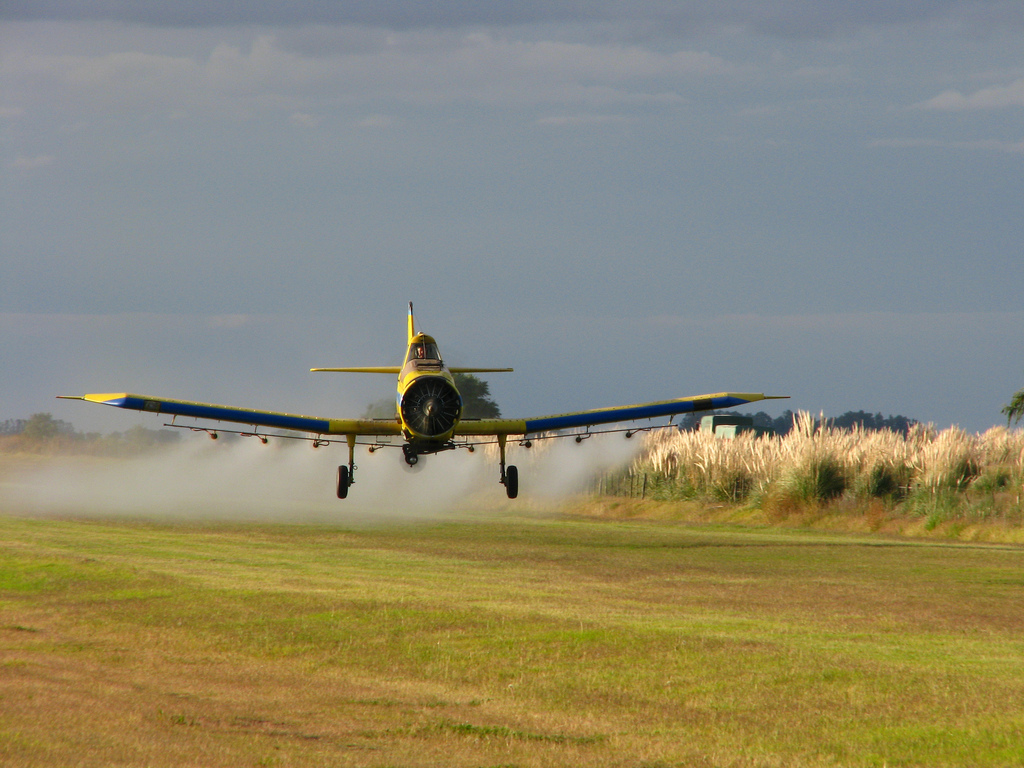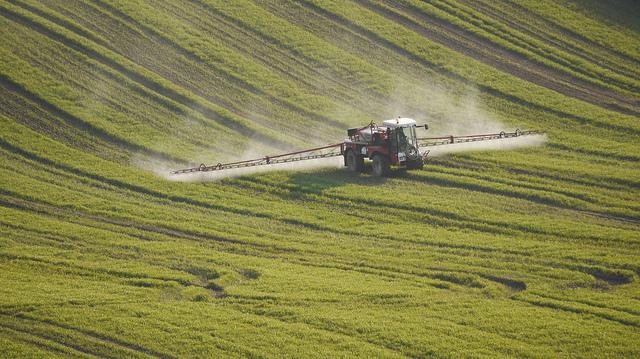-
Soils Are Threatened: Can We Halt The Problem?
By Roberta Attanasio Today, December 4, 2015, is World Soil Day — a day to connect people with soils, and raise awareness of their critical importance in our lives. Soils — the reservoir for at least a quarter of global biodiversity — have been neglected for too long. We fail to connect soil with our food, water, climate, and life. The maintenance or enhancement of global soil resources is essential to meet the world’s need for food, water, and energy security. Soil loss is an unfolding global disaster that will have catastrophic effects on world food production, according to scientists from the University of Sheffield’s Grantham Centre for Sustainable Futures. …
-
Global Threats: Water Scarcity and Uncertainty in the Estimates of Groundwater Availability
By Roberta Attanasio Groundwater is any water that lies in aquifers beneath the land surface. While some of the water that falls as precipitation is channeled into streams or lakes, and some is used by plants or evaporates back into the atmosphere, most of it seeps underground in the cracks and spaces present in soil, sand and rock. Underground layers of rock that are saturated with groundwater are called aquifers. The groundwater contained in aquifers is one of the most important sources of water on our planet, and can be brought to the surface through natural springs or by pumping. Groundwater is constantly replenished (recharged), as part of the natural water cycle,…
-
Global Threats: Climate Change is a Medical Emergency
By Roberta Attanasio For many years, we’ve been aware of the impacts of global climate change on human health and well-being. For example, safe drinking water, sufficient food, and secure shelter are threatened by rising sea levels and severe weather events. Heat waves dramatically increase death rates not only from heat strokes, but also from complications arising from cardiovascular, respiratory, and cerebrovascular diseases. However, the impacts of global climate change on human health are even greater than previously thought — according to a report published today (June 23, 2015) in The Lancet, the threat from climate change is so great that it could undermine the last fifty years of gains…
-
Global Threats: Children’s Exposure to Toxic Pesticides
By Roberta Attanasio In 2012, the American Academy of Pediatrics (AAP) released a policy statement to outline the harmful effects of pesticides in children, and to make recommendations on how to reduce exposure. According to the statement, prenatal and early childhood exposure to pesticides is associated with pediatric cancers, decreased cognitive function, and behavioral problems. In addition, the statement pointed out that recognizing and reducing children’s exposure to pesticides requires improved medical training, public health tracking, and regulatory approaches, and made recommendations on specific actions that should be taken to decrease such exposure. Despite the recognition of the dangers associated with pesticide use, and the AAP recommendations on limiting children’s…
-
Clean Air: The Effects of U.S. Power Plant Carbon Standards on Human Health
By Roberta Attanasio A little more than a year ago, the World Health Organization (WHO) reported that in 2012 around 7 million people died — accounting for one in eight of total global deaths — as a result of exposure to air pollution. These estimates more than doubled the previous ones, and confirmed that air pollution is now the world’s largest single environmental health risk. The WHO concluded that reducing air pollution globally could save millions of lives. But, what policy changes would be most effective at saving lives? The answer comes from a new study published in the journal Nature Climate Change (May 4, 2015.) The study, (US power plant…
-
Global Threats: Contamination of Surface Waters by Agricultural Insecticides
By Roberta Attanasio The use of agricultural insecticides — toxic substances developed to target and kill insects that damage crops — has sparked controversy since the dawn of the “chemical age”, which started in the 1950s. The benefits of agricultural insecticides — for example, increased food production — are undeniable. Unfortunately, along with benefits, there are considerable unwanted effects. Ideally, insecticides must be lethal to the target insects, but not to non-target species. However, these toxic substances do not target only insects — they target many more organisms, including man. Thus, the toxic brew of agricultural insecticides threatens the ecological integrity of aquatic and terrestrial ecosystems. Indeed, agricultural systems play a…
-
The Global Travels of Chikungunya Virus: Is it Coming to You?
By Roberta Attanasio Chikungunya virus is spreading fast — worldwide. First described during an outbreak in southern Tanzania in 1952, it caused sporadic illness in Africa and large urban outbreaks in Thailand and India in the 1960s and 1970s. As of now, it has been identified in over 60 countries in Asia, Africa, Europe and Americas. The virus, which causes fever and severe joint pain, is transmitted to humans by the bites of infected female mosquitoes, most commonly by Aedes aegypti and Aedes albopictus — two species that can also transmit other mosquito-borne viruses, including dengue. There is no vaccine and no specific treatment for the infection. Gemma Handy aptly describes…
-
Small Predator Diversity Plays a Significant Role in the Spread of Infectious Diseases
By Roberta Attanasio Biodiversity is a term coined to describe the diversity of all living things, from human beings to microorganisms. A New York Times editorial published almost two decades ago aptly describes the importance of the biodiversity concept: “Biodiversity is a hugely important concept that stresses the coherence and interdependence of all forms of life on earth and a new willingness to appraise the meaning of that interdependence, not just for humans but for every one of life’s component parts.” The editorial goes on to illustrate the alarming effects of biodiversity loss: “Biodiversity is a way of talking about what scientists have long understood and a way of reminding…
-
TB Unmasked: Healthcare Workers and the Global Tuberculosis Epidemic
By Roberta Attanasio World TB Day, falling on March 24th each year, is approaching — it reminds us that tuberculosis (TB) is a massive global health problem. Indeed, according to the World Health Organization (WHO), tuberculosis is one of the world’s deadliest communicable diseases. It is second only to HIV/AIDS as the greatest killer worldwide due to a single infectious agent. In 2013, an estimated 9.0 million people developed TB and 1.5 million died from it — mostly in developing countries. However, TB is curable and preventable. The WHO estimates that 37 million lives were saved between 2000 and 2013 through effective diagnosis and treatment. Despite the many saved lives, the…
-
Climate Change: A Key Driver of the Syrian Conflict?
By Roberta Attanasio Climate change is happening here and now, with significant damage to natural systems and society. The shrinking of the Arctic sea ice, the melting of the Greenland and Antarctica ice sheets, the acidification of the oceans, the sea level rise, the shifting patterns of precipitation, and the amplified threat of wildfires, are some of its well-recognized effects. There are also significant concerns related to the consequences that climate change could have on freshwater availability and agricultural productivity worldwide — resulting in increasing poverty and further weakening of fragile governments. Indeed, climate change has been identified as a “threat multiplier” — it can exacerbate political instability in the…




































